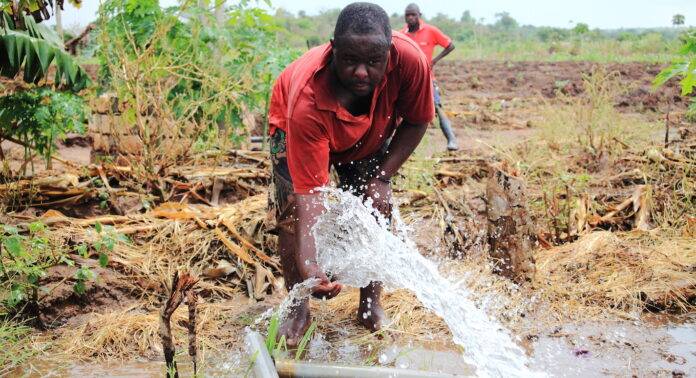Irrigation maintenance is a key activity after installing an irrigation system. Irrigation allows farmers to maintain constant crop yields while also improving water efficiency. Irrigation systems, on the other hand, require routine maintenance in order to function properly and avoid costly breakdowns. In this blog article, we’ll go over some helpful hints and tactics for maintaining your irrigation system in good working order.
Major causes of damage to irrigation systems
Irrigation systems can be damaged in a variety of ways, resulting in decreased efficiency and efficacy in water delivery to crops. Some of the most prevalent sources of injury are:
- Poor installation: Improper irrigation systems installation, such as inaccurate sprinkler placement or uneven slopes in the field, can result in insufficient water distribution or equipment damage.
- Wear and tear: Irrigation equipment like pipes, valves, and sprinklers can get worn out and damaged over time, particularly if they are not frequently serviced or replaced.
- Environmental factors: Natural phenomena such as harsh weather, rodents, and insects can also wreak havoc on irrigation systems.
- Water quality: Poor water quality, such as excessive mineral content or algae development, can cause irrigation system blockage, resulting in reduced water flow and damage.
- Human factors: Human mistakes, such as inadvertent damage during farming activities or poor equipment use, can also cause irrigation system damage.
Farmers must evaluate and maintain their irrigation systems on a regular basis to minimize damage and guarantee maximum operation.
Irrigation maintenance tips and tricks
1. Check for leaks
Leaks waste water and limit irrigation efficiency, resulting in poorer crop yields and greater expenditures. Inspect your irrigation system for leaks on a regular basis and repair them as soon as possible to avoid additional harm.
2. Clean filters and nozzles
Filters and nozzles can get clogged with debris over time, limiting water flow and coverage. Clean your filters and nozzles on a regular basis to guarantee proper operation.
3. Monitor water pressure
Excessive or insufficient water pressure might harm your irrigation system, reducing its overall effectiveness. Monitor water pressure with a pressure gauge and make changes as needed.
Read also: 5 Game-Changing Technologies Boosting Profitability in Agriculture
4. Maintain irrigation pumps and motors
Irrigation pumps and motors require routine irrigation maintenance to avoid failures and extend their lives. Examine belts, pulleys, and bearings for wear and tear and replace them as needed.
5. Schedule routine maintenance
Create and follow an irrigation system maintenance schedule. Regular irrigation maintenance can help you avoid costly repairs and downtime while also keeping your system running at full performance.
6. Upgrade your system
If your irrigation system is old or inefficient, think about replacing it with a more contemporary, water-saving system. Drip irrigation and soil moisture sensors, for example, can enhance water efficiency and minimize water waste.
Read also: 8 Key Factors in Choosing the Best Irrigation Method or System for Crop Production
7. Hire a professional
Consider contacting a professional if you’re unclear on how to manage your irrigation system or need assistance with repairs. A skilled irrigation specialist can offer professional advice and guarantee that your system is running at peak efficiency.
Finally, adequate maintenance is critical for maintaining your irrigation system in good working order and avoiding costly breakdowns.


